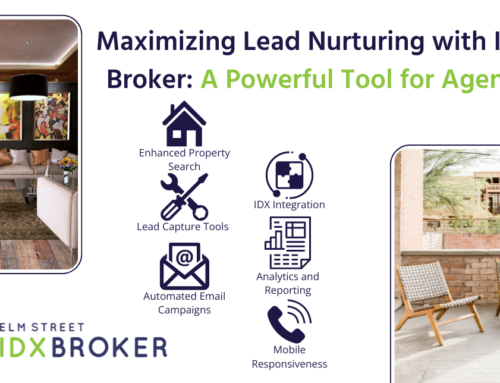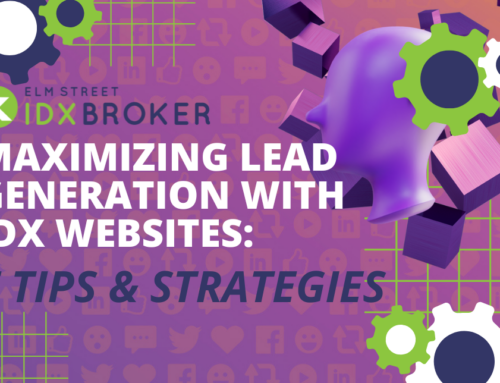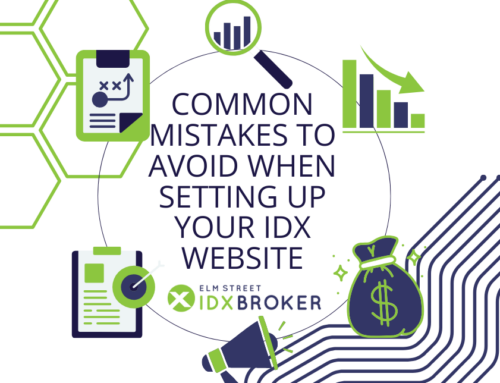
In the fast-paced and highly competitive world of real estate, having a strong online presence is crucial for success, and in today’s market, the battle for online visibility is fierce. As highlighted in, ‘Website Wizardry: 7 Secrets to Keep Clients and Prospects Hooked and Coming Back for More’ one of the most effective ways to achieve having a strong online presence is through Search Engine Optimization (SEO), especially for IDX real estate websites.
IDX (Internet Data Exchange) allows real estate agents to display real-time property listings on their websites, providing valuable information to potential buyers. However, without proper SEO, these listings might not reach the right audience. Here are essential SEO best practices for IDX real estate websites to ensure they rank well in search engine results and attract the right leads.
1. Keyword Research
Keyword research forms the foundation of any successful SEO strategy. For IDX real estate websites, focus on real estate-specific keywords such as “homes for sale in [your target market(s)],” “real estate listings in [area],” or “property for sale near [landmark].” Use tools like Google Keyword Planner, SEMrush, or others to identify relevant keywords with high search volumes and moderate competition.
2. Optimize Meta Titles and Descriptions
Meta titles and descriptions are what users see in search engine results, so they need to be attention-catching, compelling, and informative. Include target keywords in meta titles and descriptions, keeping them concise and relevant to the property listings. For example, a meta title could be “Luxury Condos for Sale in Downtown Miami | Your Real Estate Agency,” while the meta description could highlight unique selling points like “Explore our exclusive listings of luxury condos in the heart of Miami’s vibrant downtown.”
3. Create Unique, High-Quality Content
Content is king in the world of SEO – Google’s algorithm is entirely based on content. Create unique and informative content around your property listings, neighborhoods, real estate trends, and buying/selling tips. This not only provides value to your audience but also helps search engines understand the key value you are providing from your website. Consider writing blog posts, neighborhood guides, market reports, informative property descriptions, and value-driven content for your readers.
4. Optimize Images with Alt Text
Real estate websites are image-heavy, showcasing various properties and their features. Optimize these images by adding descriptive alt text that includes relevant keywords discussed in tip number one. Alt text not only improves accessibility for visually impaired users but also helps search engines understand the content of the images. For instance, “Luxury waterfront condo with panoramic views | Downtown Miami Real Estate.”
5. Mobile-Friendly Design
With the majority of internet users now browsing on mobile devices, having a mobile-friendly website is non-negotiable. Over 60% of visitors scroll your site from their phone versus a desktop or tablet. Ensure that your IDX website is responsive and optimized for different screen sizes. Google prioritizes mobile-friendly websites in its search results, so this step is truly non-negotiable.
6. Local SEO for Real Estate
Local SEO is especially important for real estate agents targeting specific geographic areas. Claim your Google My Business profile and optimize it with accurate business information, including address, phone number, and business hours. It’s free, and can make a tremendous impact on how your site ranks locally. After you have a successful transaction, encourage your satisfied clients to leave reviews on your Google profile, as positive reviews can help boost your local search rankings significantly.
7. Improve Website Speed
A fast-loading website not only provides a better user experience but also ranks higher in search results. Use tools like PageSpeed Insights to identify and fix any issues that might be slowing down your website. Compress images, enable browser caching, and consider using a Content Delivery Network (CDN) to improve load times.
8. Build Quality Backlinks
Backlinks from reputable websites are a strong signal to search engines that your website is trustworthy and authoritative. Reach out to local businesses, industry partners, and real estate-related websites for opportunities to guest post, contribute content, or exchange backlinks. Focus on quality over quantity, as backlinks that appear to be spam or irrelevant can harm your SEO efforts.
9. Monitor and Analyze Performance
SEO is an ongoing process, and it’s essential to monitor your website’s performance regularly. As Peter Drucker said, “What gets measured gets improved.” Use tools like Google Analytics and Google Search Console to track traffic, user behavior, keyword rankings, and website errors. Analyze this data to identify areas for improvement and adjust your strategy accordingly.
Implementing these SEO best practices for IDX real estate websites can significantly improve visibility, attract qualified leads, and ultimately drive more sales. By optimizing your website for search engines and providing valuable content to users, you can establish your online presence as a trusted resource in the competitive real estate market. People do business with those they know, like, and trust, and creating this trust starts with how you portray your business online.
Explore IDX Broker for information about how to add seamless IDX functionality to your website or connect with us for more information on how to add features to your website that will supercharge your SEO game.





